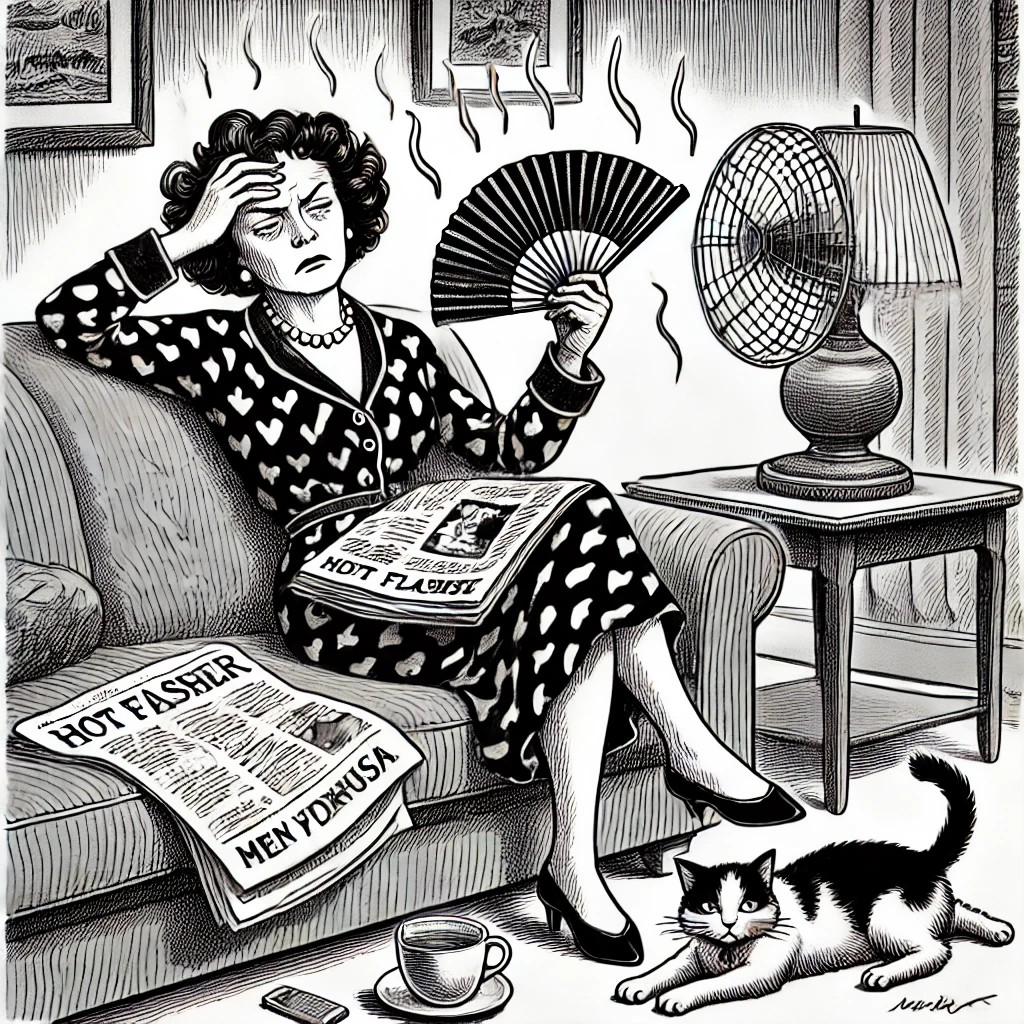Periods. Unlike the punctuation mark that it shares a name with, a woman’s Period marks the beginning of something new for a girl’s reproductive organs. On average, most girls typically get their first menstrual cycle around the age of 12, but it’s been reported to happen anywhere between the ages of 9 and 15. After that first appearance, one’s Period will typically occur once a month, every month for as long as one is fertile and no complications arise for years to come. Ironically, it’s when one stops having their Period that this stage of a woman’s life ends.
And Something Else Begins…
Menopause is a natural phase in a woman’s life that marks the end of her reproductive years. It usually occurs between the ages of 45 and 55, though the exact timing varies for each individual. This transition happens as the ovaries gradually produce less estrogen and progesterone, the hormones that regulate menstruation. When a woman has gone a full year without a period, she is considered to be in menopause.
The journey to menopause, known as perimenopause, can last for several years and is often accompanied by a range of symptoms. Some women experience hot flashes, night sweats, and mood swings, while others may notice changes in their sleep patterns, weight, or skin. These symptoms are caused by hormonal fluctuations and can vary widely in intensity and duration. While some women go through menopause with minimal discomfort, others may find it challenging to manage the physical and emotional changes.
“There were nights where I’d wake up and find myself, my pajamas, and my bed sheets completely drenched in sweat.” Rebecca, aged 51, laments a frequent occurrence in her nighttime routine since the advent of menopause. “After I had my two kids, I couldn’t wait to stop bleeding for a week every month. But between the uncomfortable nights, the weight gain, and terrible moods I’m now wondering if [menopause] is worse.”
Beyond the noticeable symptoms, menopause can also have long-term effects on a woman’s health. The decline in estrogen levels can contribute to a higher risk of osteoporosis, a condition that weakens bones, and cardiovascular diseases. For this reason, it is important to focus on maintaining a healthy lifestyle, including a balanced diet, regular exercise, and stress management techniques. Some women may choose hormone therapy or other medical treatments to help alleviate severe symptoms, but it is always best to consult a healthcare professional to determine the most appropriate approach.
Our Solution, Your Relief
Here at Best Medical Acupuncture Clinic, we offer holistic treatments to help manage menopause symptoms naturally. Dr. Irene has proven to reduce the frequency of hot flashes, improve overall sleep quality, balance seemingly off kilter moods, and enhance overall well-being. By stimulating specific points on the body, she can help regulate hormone levels, reduce stress, and improve circulation. Dr. Irene makes it a point to tailor treatments to each individual’s needs, providing a natural and effective approach to menopause management.
Despite its challenges, menopause is not something to fear. It is a natural transition and can be embraced as a new phase of life.
We at Best Medical Acupuncture Clinic can provide the right support, and help thousands of women navigate from their fickle menopausal journey to a healthy, balanced quality of life. If you or someone you know is looking for a drug-free way to ease the symptoms of menopause, then don’t hesitate, reach out today at (201) 565-1778 for a complimentary in-person consultation.
“Menopause is not the end; it’s a new beginning. Embrace the changes, and you’ll find the strength within.” – Anonymous

